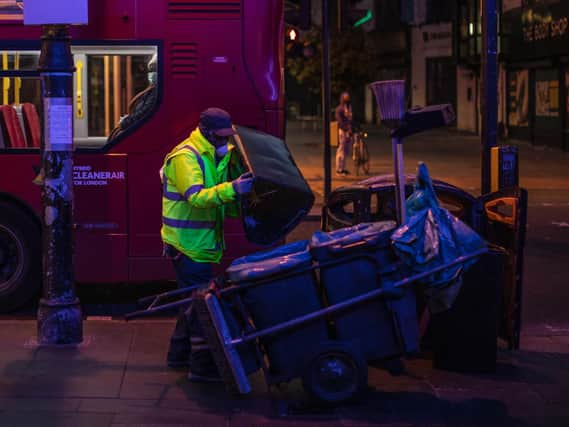Almost 20 per cent of Northampton workers earn below 'real living wage' prompting concern over key worker pay


Hundreds of thousands of key workers considered critical to the UK’s response to the coronavirus crisis are earning below the so-called “real living wage”, data suggests.
In the East Midlands, figures from 2019 provided by the GMB Union show that there are 2,398,669 key workers work in this region, which include 38,207 cleaners, 9,590 check out operators and 33,178 teaching assistants.
Advertisement
Hide AdAdvertisement
Hide AdThe real living wage is a voluntary scheme devised by the Living Wage Foundation. It is calculated independently from the government and is based on costs such as food, clothing and household bills.
One in five UK employees earn below the Living Wage Foundation rates, including hundreds of thousands of key workers including hospital cleaners and porters, teaching assistants and carers.
The Living Wage Foundation rates are currently £10.75 an hour for those working within London and £9.30 an hour for those working in the UK outside London.
The scheme is separate to the statutory National Living Wage, which is the legally-binding hourly rate for workers aged 25 and over. It is reviewed every year just like the National Minimum Wage (for under 25s).
Advertisement
Hide AdAdvertisement
Hide AdThe government raised the National Living Wage to £8.72 an hour from 1 April.
The GMB union said the coronavirus crisis had shone a light on the “rock-bottom pay” of the people “expected to risk their health to protect us”. It says more than three million workers could be affected and called for key workers’ wages to be raised.
Economists have, however, urged against further wage rises before the full toll of the crisis is clear. The Low Pay Commission, an independent body which advises the government, warned it might be necessary to apply an "emergency brake" on long-term plans to continue to lift the statutory minimum.
The Department for Business, Energy and Industrial Strategy said: "It is right we ensure the lowest paid are fairly rewarded for their contribution to the economy, particularly those working in essential services during the biggest threat this country has faced in decades.
"This year's increase to the National Living Wage means we will be putting an extra £930 a year into the pockets of 2.4 million of the UK's lowest paid workers."
Comment Guidelines
National World encourages reader discussion on our stories. User feedback, insights and back-and-forth exchanges add a rich layer of context to reporting. Please review our Community Guidelines before commenting.